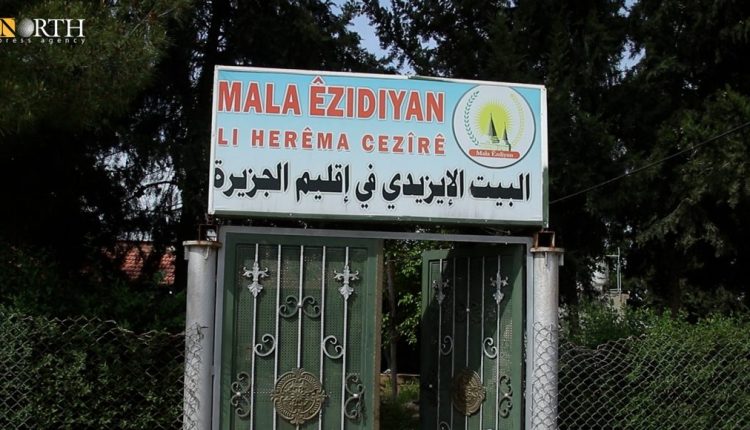Yazidis in Syria struggle for survival amid rapid changes
By Samer Yassin
HASAKAH, Syria (North Press) – The recent upheavals in Syria, marked by Hayat Tahrir al-Sham’s (HTS) control over Damascus and the fall of the regime, have left religious and ethnic minorities grappling with uncertainty about their future.
The Yazidis, one of the most persecuted groups in Syria’s history, fear a repeat of the genocides, massacres, and displacements they have endured for centuries. Their plight intensified under ISIS, which targeted them systematically.
According to the Yazidi House in the city of Qamishli, northern Syria, there were around 7,000 Yazidis in the region before waves of displacement began. Approximately 400 Yazidi families fled the northern countryside of Aleppo, locally known as Shahba region, following the Turkish-backed Syrian National Army’s (SNA) capture of the area in late November.
Fearful existence
Khalil Junaid, a Yazidi from Afrin, has been displaced twice since 2018. First, his family fled Afrin due to the so-called Turkish Olive Branch Operation which resulted in the occupation of Afrin region, and later, they were forced to leave Shahba for Hasakah countryside under pressure from the Turkish-backed SNA factions.
Junaid told North Press that Yazidi people have faced systematic marginalization and oppression, instilling constant fear in our hearts. “These policies displaced us first from our homeland, then from Shahba to Hasakah.”
He emphasized the need for Yazidis to be protected under Syria’s new constitution, noting that they seek a shared homeland where their rights are guaranteed, allowing them to live freely, practice their traditions without harassment, and secure representation in the new Syria, according to Junaid.
Future in limbo
Shahnaz Omar, another Yazidi who fled Afrin, expressed frustration over the uncertainty surrounding her community’s future. After multiple displacements, she said that they do not know what fate awaits them if they return home.
Omar stressed the importance of Yazidi rights in the new Syrian constitution. “We need guarantees to ensure these oppressive policies do not repeat and to pave the way for our safe return,” she said.
Demands for recognition
Nalin Rasho, co-chair of the Yazidi House in Qamishli, called for official acknowledgment of Yazidis’ suffering and inclusion of their rights in Syria’s political, religious, and social framework.
“Yazidis have endured centuries of violence and displacement due to a lack of recognition,” Rasho said. “We demand acknowledgment of past genocides and equal rights for all communities to prevent further massacres.”
She cited the 2014 Sinjar genocide and recent displacements in Afrin and Sere Kaniye as stark reminders of the community’s ongoing struggles.
Rasho concluded by emphasizing the urgency of protecting all religious and ethnic groups in Syria, with special attention to Yazidis, who remain vulnerable to systematic targeting.

